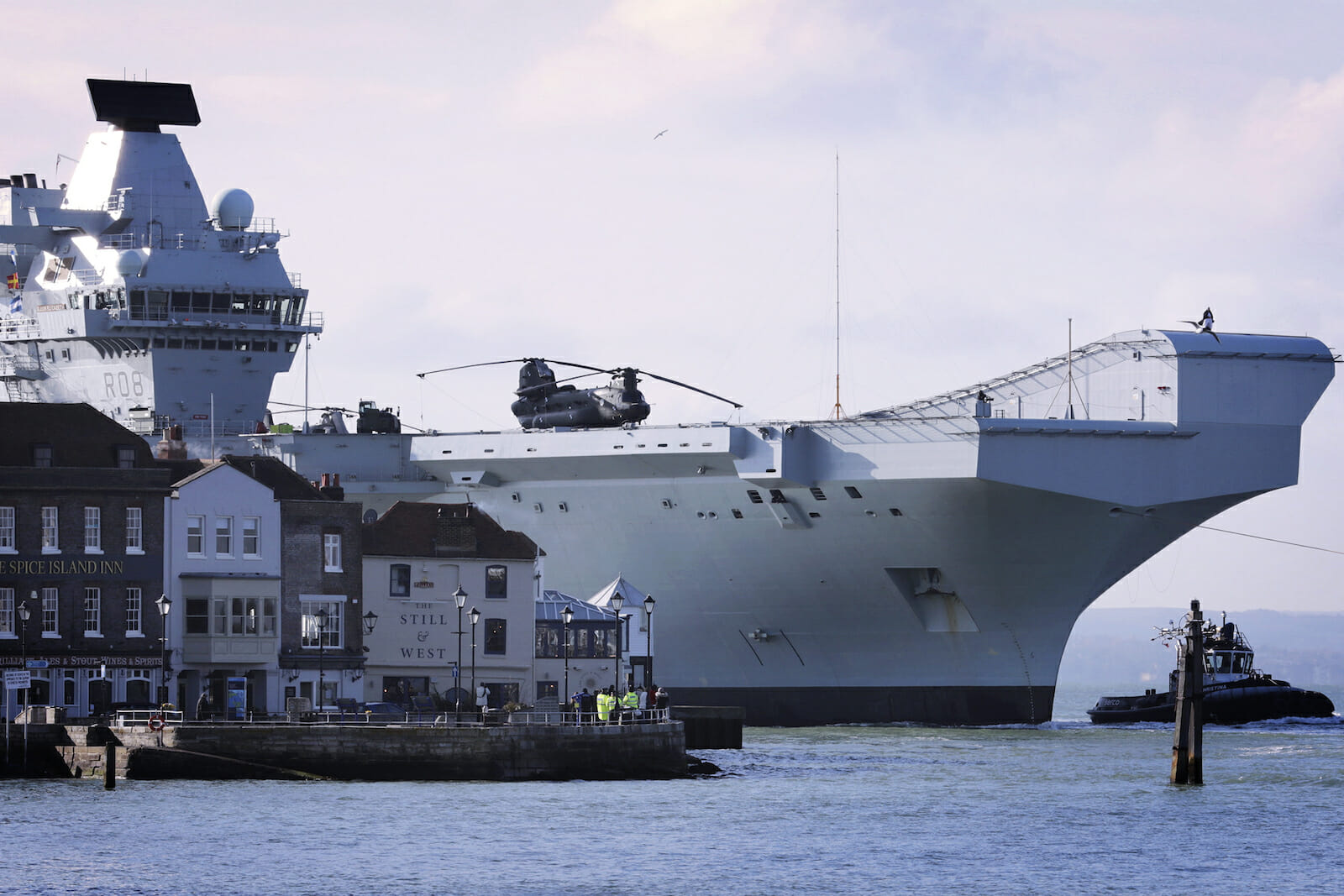
The UK Wants to Teach China a Lesson
A startling case of Brexititis, marked by nostalgia for imperial grandeur, the singing of Rule Britannia when taking a shower, and an unhinged view of the world and Britain’s diminished role in it, was observed in London on February 11.
On that day, Gavin Williamson, the UK defense secretary, said there are plans to sail the country’s new aircraft carrier HMS Queen Elizabeth across the oceans to put China in its place by cruising majestically into the South China Sea. China has claimed a huge amount of territory in the sea and built air bases and naval facilities on many of the islands. There is little the West can do about it militarily. It can, through diplomacy, get China to navigate a different course but a spanking new aircraft carrier from Britain, regardless of how up-to-date it is, will not make an iota of difference.
And two military bases, Williamson added, in the Caribbean and Asia will be built to “strengthen our global presence.” OK, so far so good, that’s what defense chiefs say routinely, boost global presence, show the flag, it’s what they are paid to do to boost their budgets, but then he added: “to enhance our lethality and increase our mass.” It does beg the question, what lethality and what mass?
First of all, the carrier will enter active duty in 2021. Very sportsmanlike, very British, telling the “enemy” your plans two years in advance. The Chinese must be shaking in their boots and boats.
Williamson said that the UK had to be ready to use “hard power” when he announced that the carrier’s first operational mission would take place in the South China Sea. Absolute tosh. Britain is in no position to take on China in that sea. Full stop.
Even the British government torpedoed the notion. An official spokesman said in response that the carrier would not be deployed until 2021, that it would visit a number of global locations and that the prime minister, not the defense chief with ambitions to lead the party, would take the final decision over its route.
The prime minister’s spokesman said: “In relation to China, I think we have set out areas where we have concerns – such as around cyber-intrusions against the UK and our allies. But it is also a country with which we have a strong and constructive relationship.”
Let’s face reality. If the HMS Queen Elizabeth enters the South China Sea, the Chinese will protest, and demand Britain stop its provocation. Then the carrier will retreat after a brief stint in the disputed waters. Point made. The carrier returns home, Britain still rules the waves and the spirit of Drake and Nelson lives on.
The missiles on Fujian province alone can secure the sea for China. It does not need to deploy its navy to deal with an aircraft carrier. In the meantime, and in stark contrast, post-Brexit Britain will be hailing a new trade deal with China as a “win-win situation” for both countries. The deal will highlight Chinese investment in Britain in communications, banking, and transport. Britain will invest heavily in Chinese manufacturing and education sectors.
A reality check. Britain’s armed forces are at their smallest number since the Napoleonic wars. At about 80,000, they would not even fill Wembley stadium’s 90,000 capacity on cup final day.
There is a threat from terrorism but technological and robotic counter-measures need to be enhanced to deal with it. There is no threat from the South China Sea. There is a clear and present danger, though, of believing that post-Brexit Britain can again rule the waves. Or that China is an enemy that needs to be taught a lesson. They have had experience of being taught lessons from the West.

